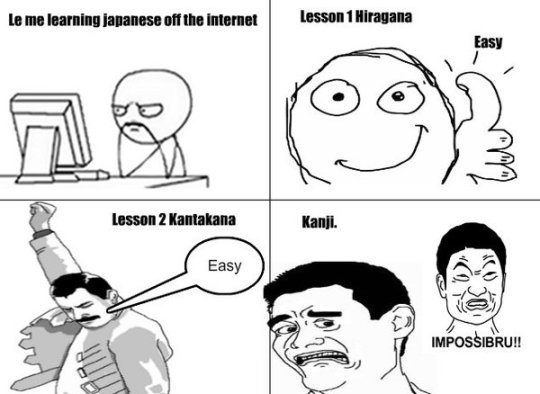Not only is it possible to learn Japanese in your car, there are 3 great benefits that will help you master the language faster and with less effort.
With everyone so pressed for time these days, it might seem like a daydream to believe that you could learn Japanese in your car—but it’s not! Thanks to a wide range of new technologies and resources, learning a language in your car is easier than ever. Not only is it easy to learn a language while driving, there are actually a number of benefits, especially if the lessons are part of a structured learning program like JapanesePod101. Here are three specific benefits to learning Japanese or any other new language in your car.
Create Your Free Account and Learn Japanese from the Very Beginning!
1. Transform Downtime into Progress
How much time do you spend commuting to and from work? Learning a language in your car transforms your commute time into tangible progress towards your dream. So instead of being stressed over how much time you are “wasting” on errands and daily commutes, you can decompress and have some fun while you learn Japanese in your car!

2. Daily Exposure Leads to Passive Learning
Practice makes perfect and learning a new language is no different. The daily exposure you get when you learn Japanese while driving helps improve listening comprehension, pronunciation, and of course helps build vocabulary and improve grammar. Don’t worry: You don’t need to memorize everything as you listen in Japanese while driving. Just having continuous exposure to a foreign language helps you improve your vocabulary, learn faster, and ultimately retain more through passive learning.

3. Learning While Driving is Fun
Learning a new language does require a serious commitment, but that doesn’t mean it can’t be fun! When you learn Japanese in your car, you get to take some time away from the PC or smartphone and immerse yourself in the language instead of just “studying” it.
Plus, there are a number of “fun” activities that you can do and still learn in your car, such as:
– Singing Along with Japanese Songs
– Playing Word Games or Trivia
– Just Listening Along and Seeing How Much You Can Pick Up and Understand

Want to Learn How to Get Angry in Japanese? Pick-Up Lines? Our Vocabulary Lists are Made for You!
Yes, you can learn a language while driving and have loads of fun doing it. Now let’s take a look at some specific things you can listen to while driving to help you learn a new language.
BONUS: 3 Ways to Learn Japanese in Your Car
–Listen to Podcasts: Typically designed to focus on one topic or lesson, podcasts are a great way to learn a language while driving. Unfortunately, podcasts are rarely at the same listening/comprehension level as the language learner so listeners may not get their full value. But at JapanesePod101, our podcasts are created for every skill level so you don’t waste any time on material that isn’t relevant or suited to your exact needs.
–Sing Along to Japanese Songs: Remember, just immersing yourself in a language can create passive learning and improve your pronunciation. Plus, with JapanesePod101, you can sing along and memorize the lyrics, and then look the words up and add them to your personal dictionary.
–Playing Word Games or Trivia: There are audio games available online that you can download to any media device and listen to on your commute. Although we recommend this option for more advanced users, games are a fun and productive way to learn Japanese in your car because they require listening and comprehension skills.

Want To Master 1500 Kanji in Few Weeks? Download Your Free eBook Now
You won’t recognize or understand every word you hear in a Japanese song, podcast, or game—but that’s ok. The daily repetition and immersion in the language leads to passive learning that gradually increases your knowledge of vocabulary, grammar, and pronunciation. And the greater your foundation in grammar and vocabulary, the more you’ll understand and learn from the audio lessons, podcasts, or whatever you listen to while learning Japanese in your car.

Yes, you can learn Japanese while driving because it leads to passive learning via daily immersion in the language. Although you may not understand all or even most of what you hear at first, the exposure helps improve pronunciation, vocabulary, and even grammar over time. Learning a language while driving also helps transform your commute into exciting “exotic adventures” that secretly teach you Japanese in the process. Podcasts, songs, and even games can all help you learn Japanese in your car while eliminating the “boring commute” in the process!
At JapanesePod101, we have more than 2500+ HD audio lessons and podcasts for every skill level that you can download and use to learn Japanese while driving!
So don’t forget to sign up for a Free Lifetime Account on JapanesePod101.com to access tons of FREE lessons and features to become fluent in Japanese!









































































